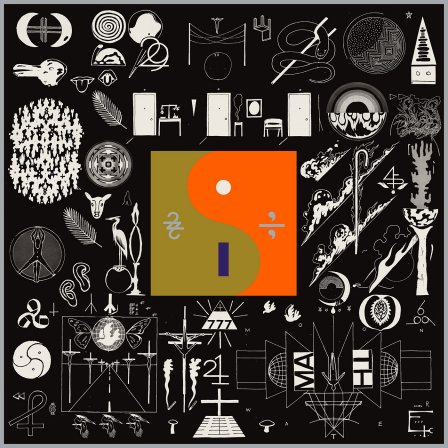Despite the stoic pretense, Justin Vernon is a punchline. Through the arc of his well-waxen career, the Eau Claire native has come to embody a set of stereotypes — the weathered woodsman, holed up in frosted isolation, radiating the sort of sparse acoustic warmth that has sparked a striking generational enthusiasm for the weathered realism of the current moment, both of folk songwriting and of folk music at large. It’s made him the butt of hackneyed SNL jokes and some of the worst memes around the internet, but something about the project — Vernon’s hushed falsetto and jangled troubadour strum in particular — has become a conduit for a certain generational escapism, a communal reflexivity that, even from the isolation of forested cabin, reaches out to bridge the gap.
It’s a mode of populism that’s inspired Kanye collaborations and fueled more than a meager salary of guest appearances and sponsorship deals, but at its core, this ability to bridge the divide between intero- and exteroception — the ability to broadcast a one-size-fits-all interiority — is something that’s never really sat well with me. It feels like a paradox: to ask songwriters to put forth an emotive ambivalence that’s truly fit for all across an endless expanse of cultures and generations must be an impossibility on principle, even for the most acclaimed songwriters. But something about Vernon’s work as Bon Iver has successfully mediated this populism, convincingly bridging the gap between modes of artistic production.
All of this feels intensified by the band’s stature these days. At a time when almost no one sells more vinyl than Vernon, Bon Iver have crested with the sort of inescapable acclaim that feels impossible to ignore. After trading in clubs for stadiums and collecting a few rather insufferable rap features, the band has come to ultimately occupy a place that no folk artists have gone before. With the welling pressure to continue the successes of this early stretch, Vernon’s decision to venture into more experimental terrain feels refreshing, despite the album’s ham-fisted track names and esoteric collage of suggestive nothingness.
But now, finally, we have it. 22, A Million, the third release from the act, is a short trek through forms that Vernon has certainly explored before, now paired with an alleged attempt to recede from public view. The album is certainly noisier and more sample-driven than before, with tracks like “21 M◊◊N WATER” and “____45_____” indulging in mild electronics and a low bass hum. Rumbling against a loop of samples, “10 d E A T h b R E a s T ⚄ ⚄” features a breathy auto-tune familiar to anyone who’s heard James Blake’s self-titled release; the track reads like the postscript of a relationship, shaky and crumbling into an “unorphaned” nothingness, “decoding” with every demon.
For such claims to experimentalism, the release feels shockingly conventional. Dabbling in brassy samples and strident bits of percussion, “33 ‘GOD’” flirts with sonic extremities without giving up any songwriting form; Vernon’s lyrics still grasp at populist appeal, riddled with a familiar uncertainty that beckons in their ambivalence. “666 ʇ” stretches the lush reverbs of Bon Iver to new places, with flutters of electronic drums and the weathered warble of well-worn acoustics.
As a Bon Iver release, 22, A Million is the band’s most impressive record to date, surging forward with oddities that, while certainly nothing new to adventurous listeners, bridge the gap with satisfaction. Premised on retreat, the release finds Vernon instead unable to make anything but a pop record, fondly returning to the wooded Wisconsin terrain with the effete sensitivity and unwavering lushness of his 2008 release. If this is supposed to be his Age of Adz, his Spirit of Eden, it can only be in its ability to pull some larger truth from deep within the machine. No matter how it moves, the release can’t shake itself from the spotlight. Inside or outside, attention must be paid.
More about: Bon Iver




